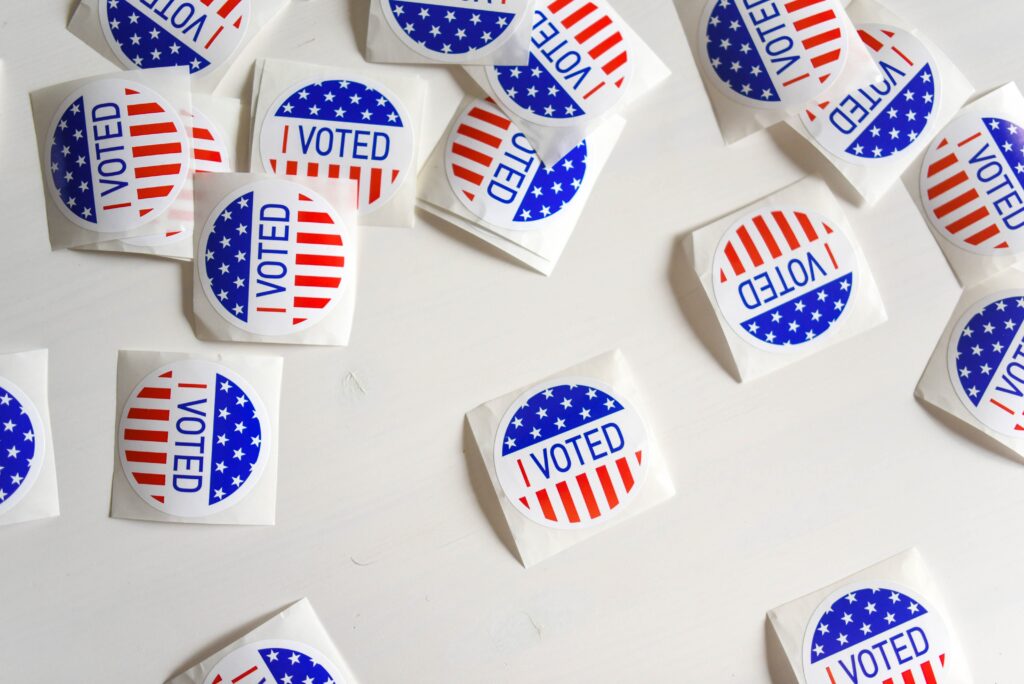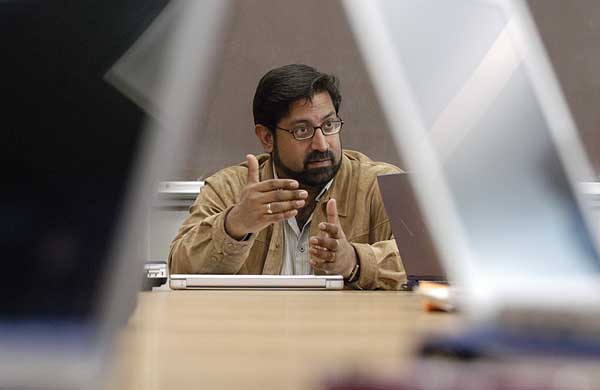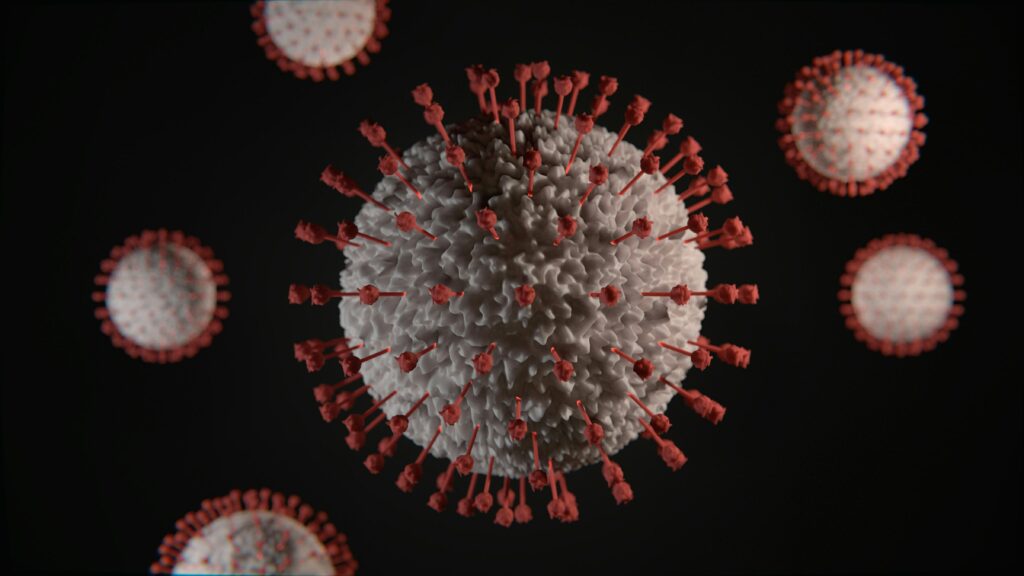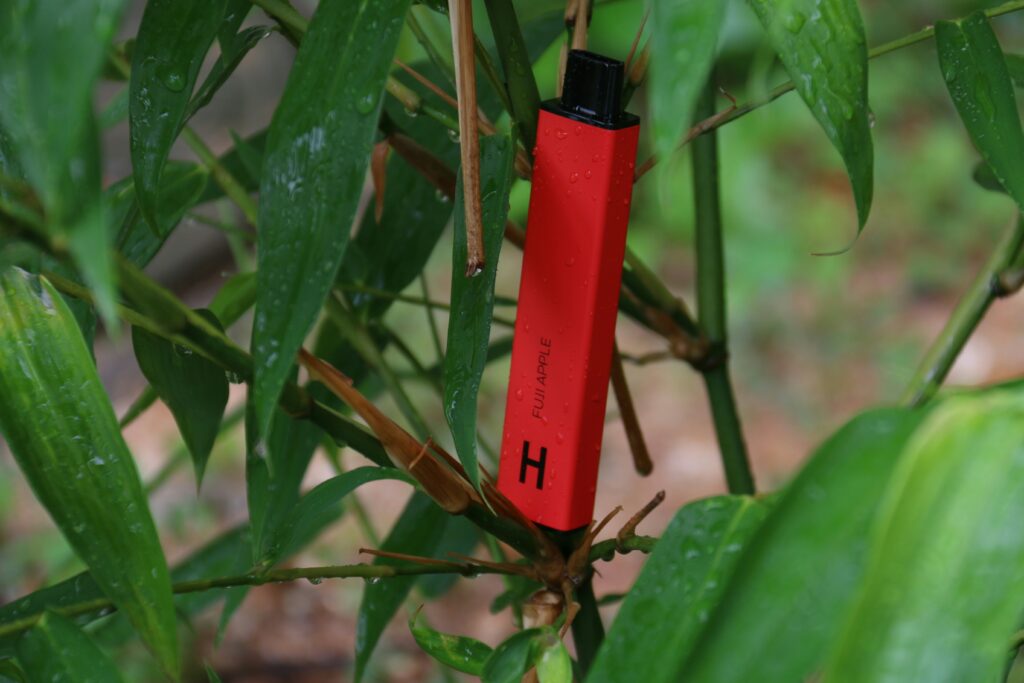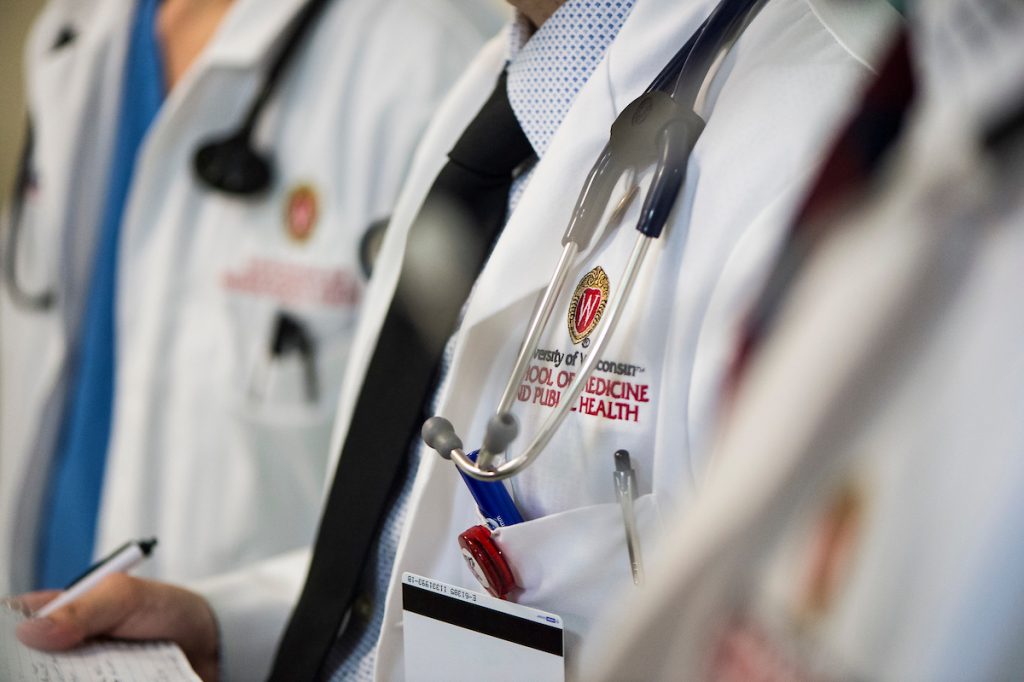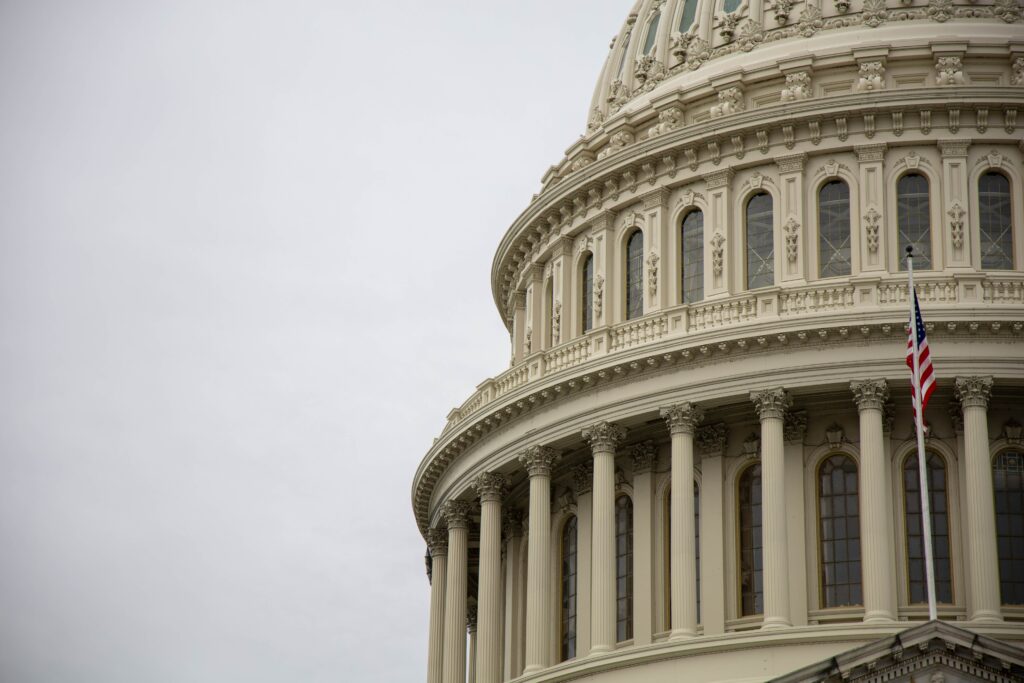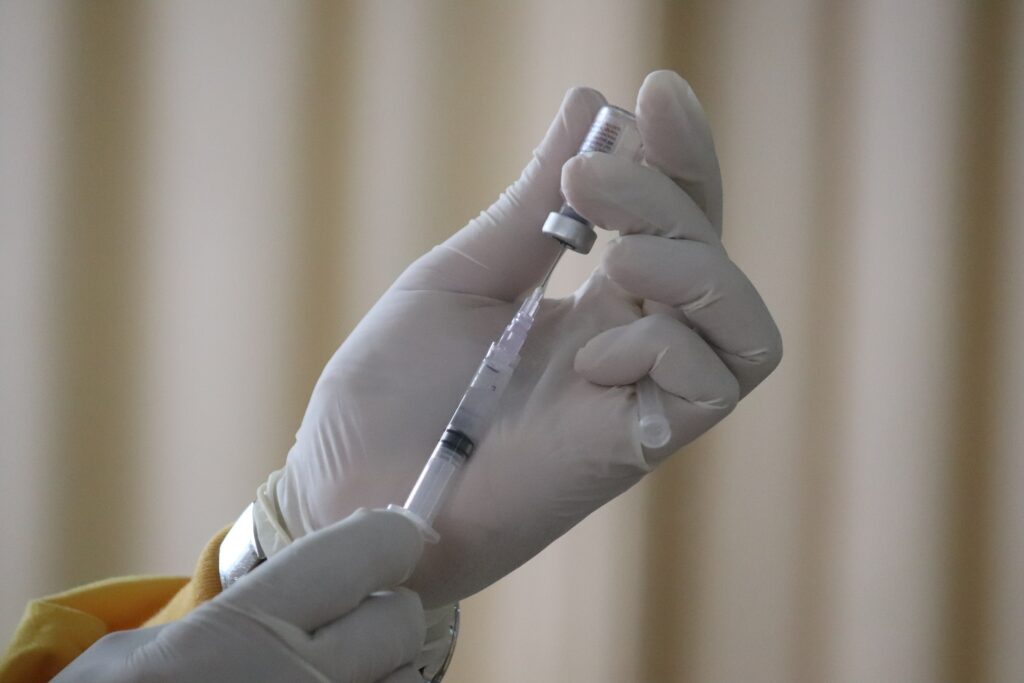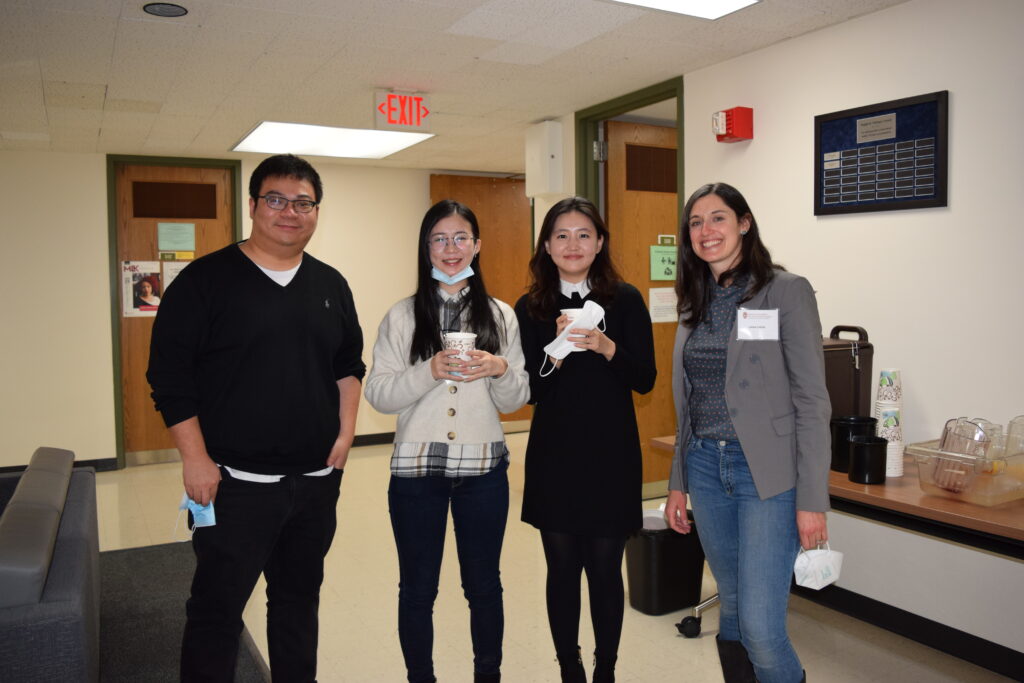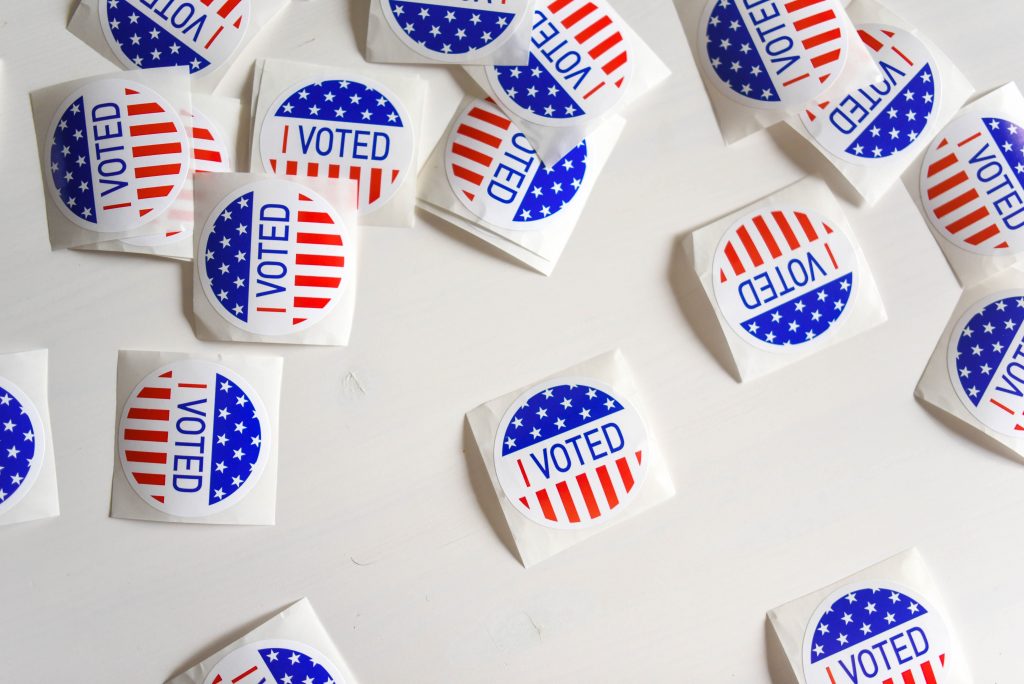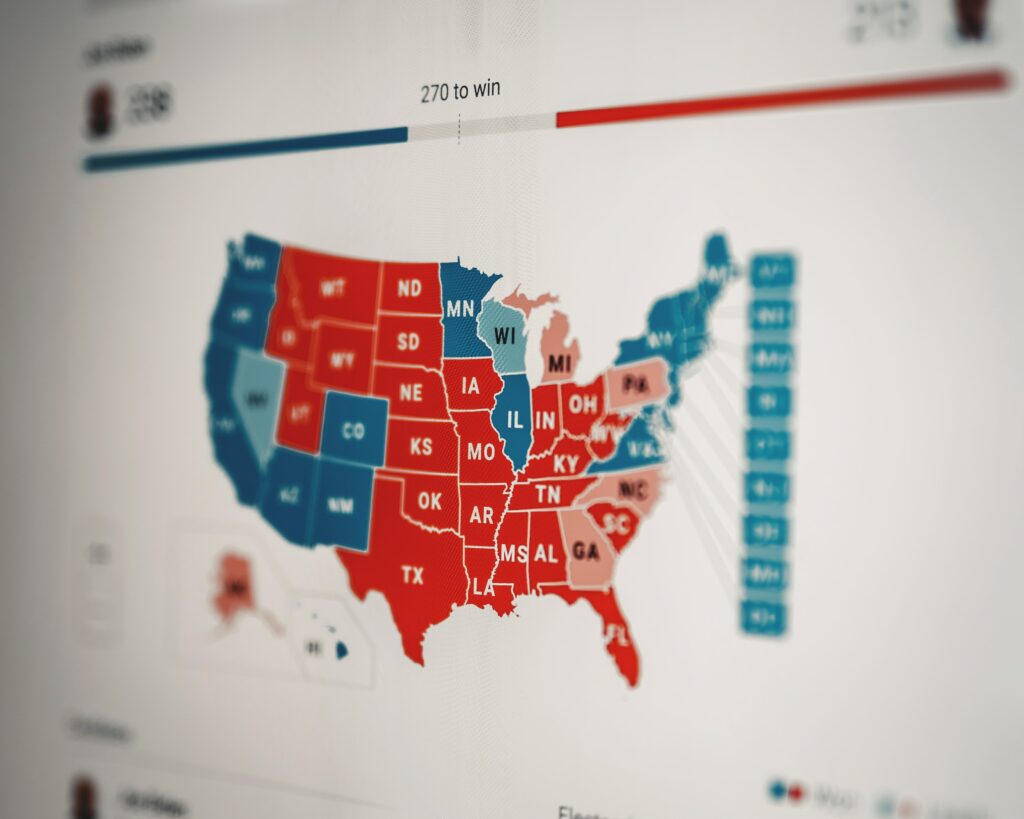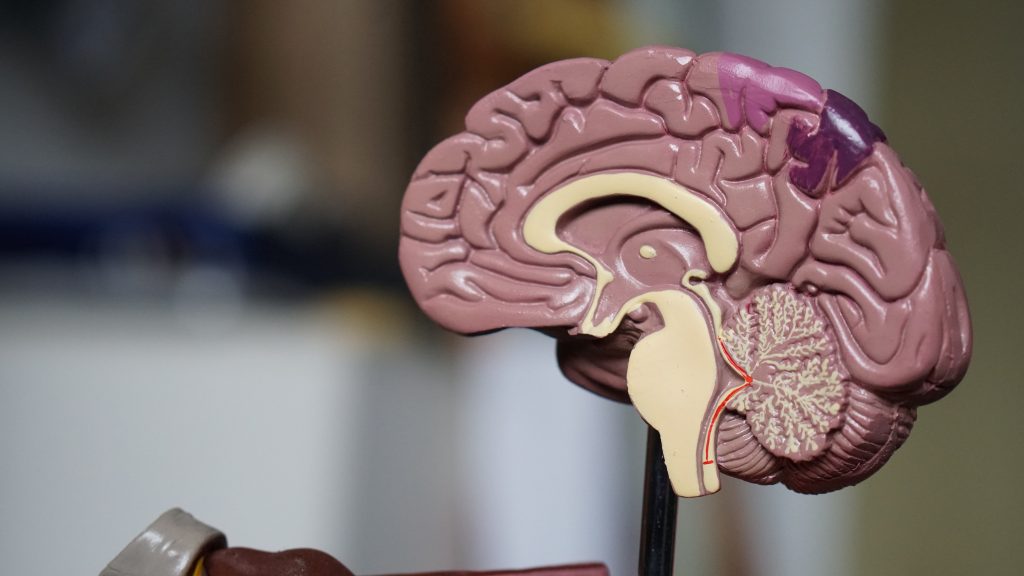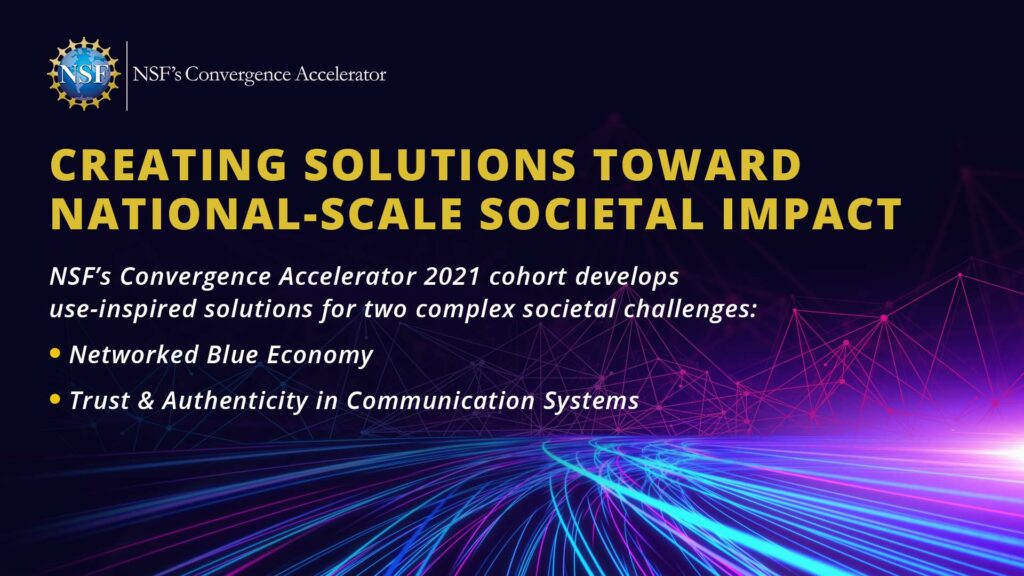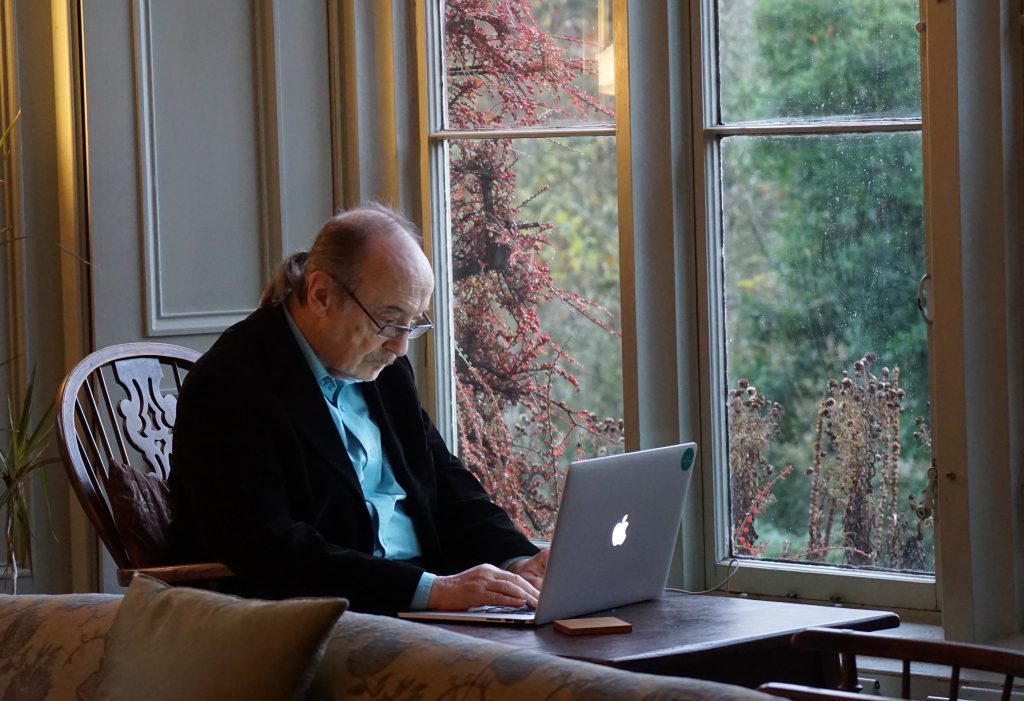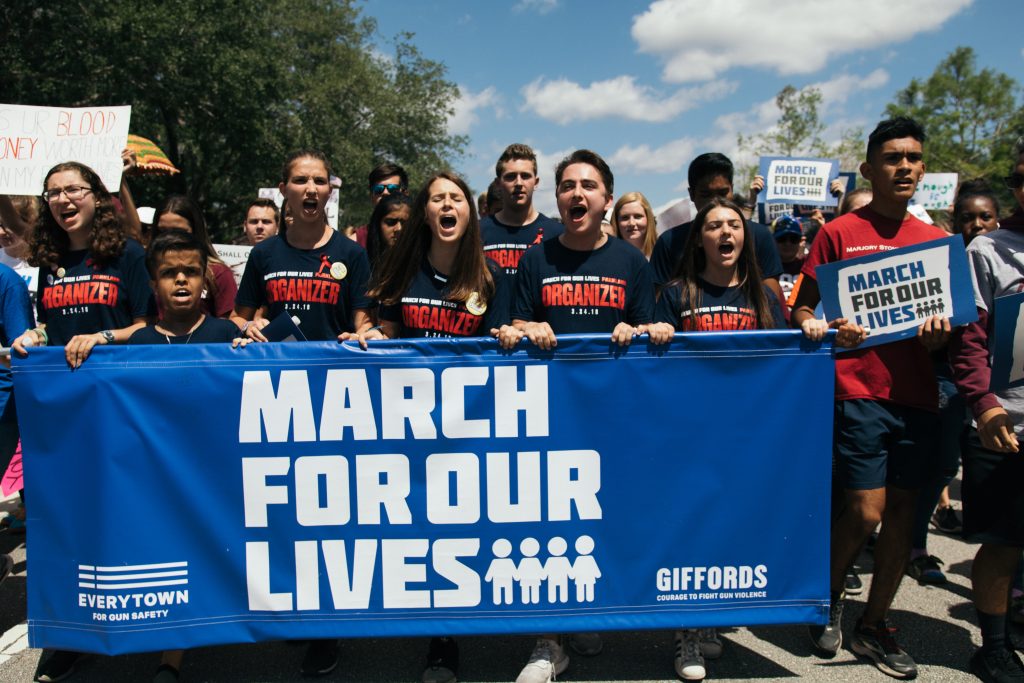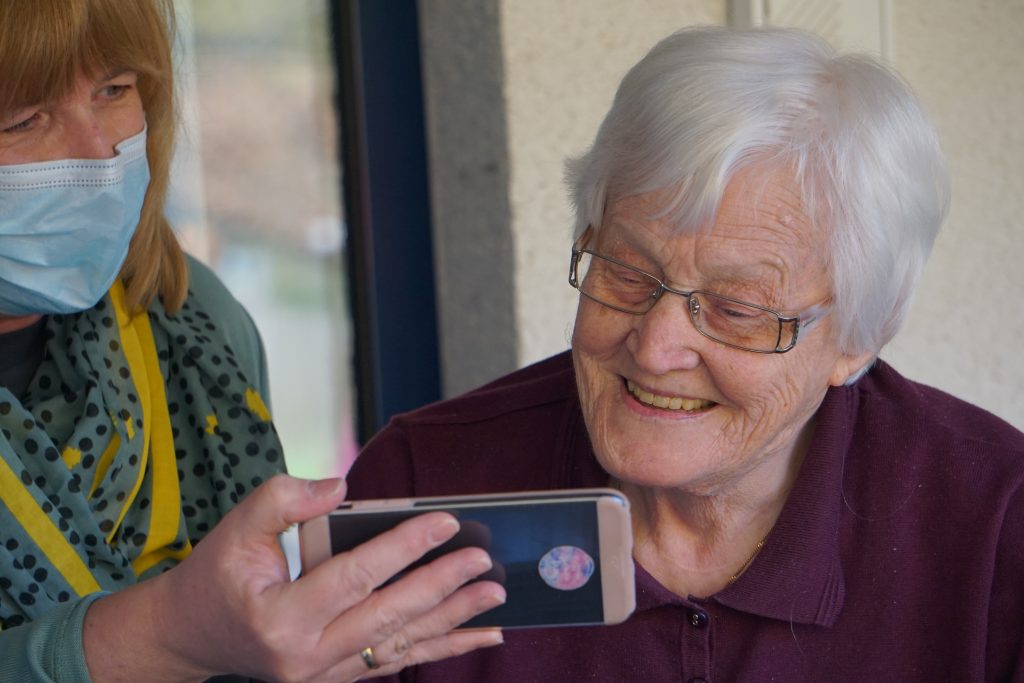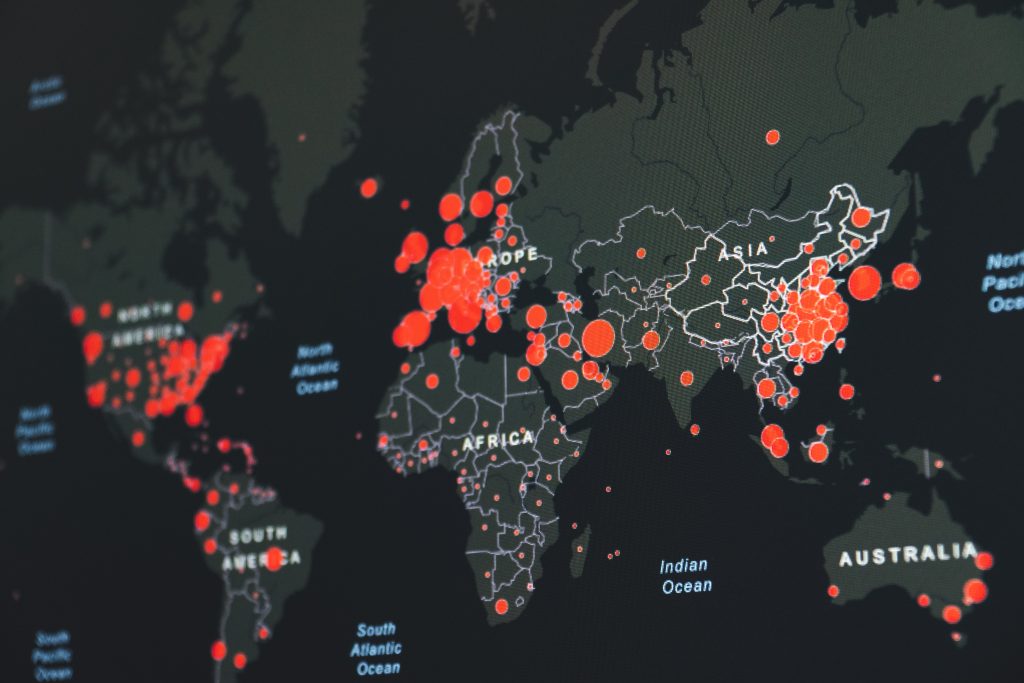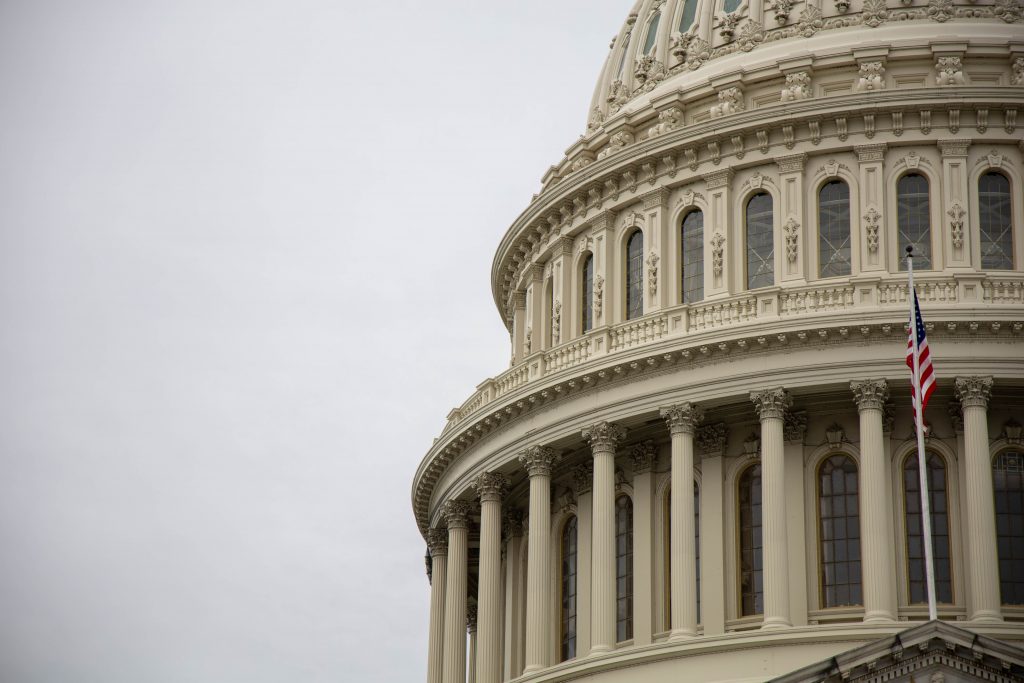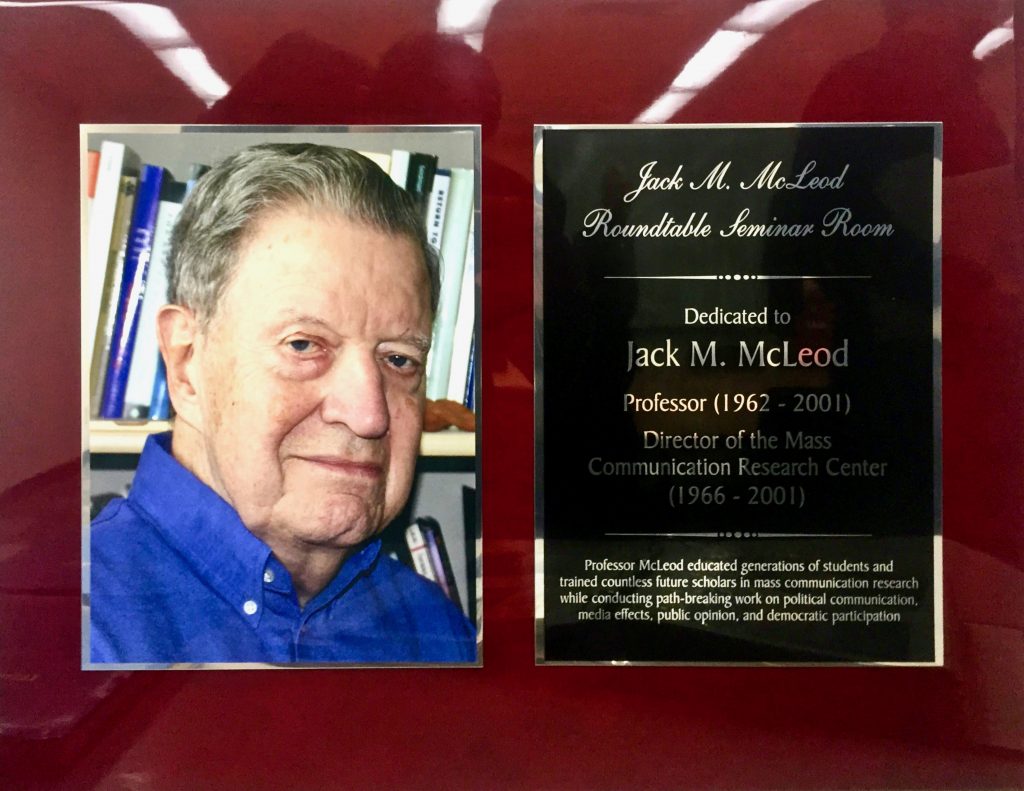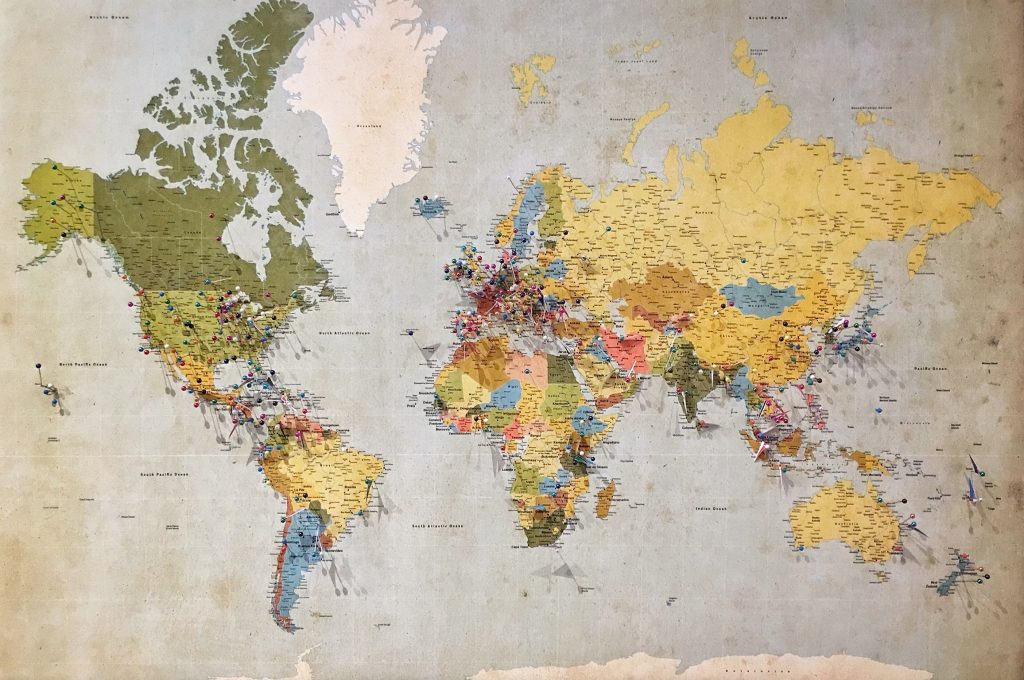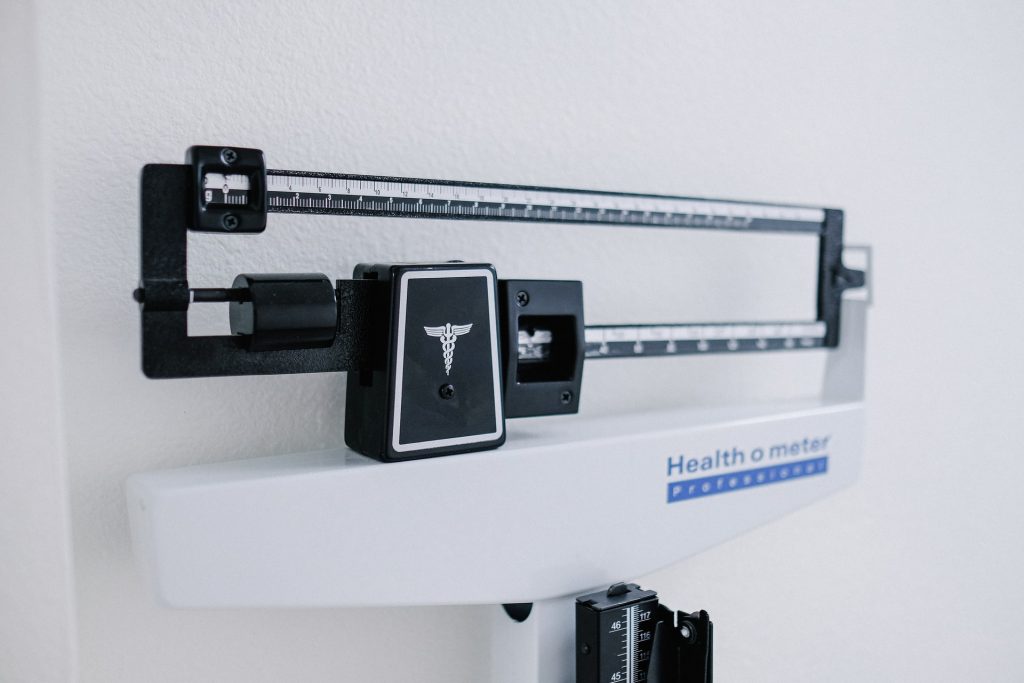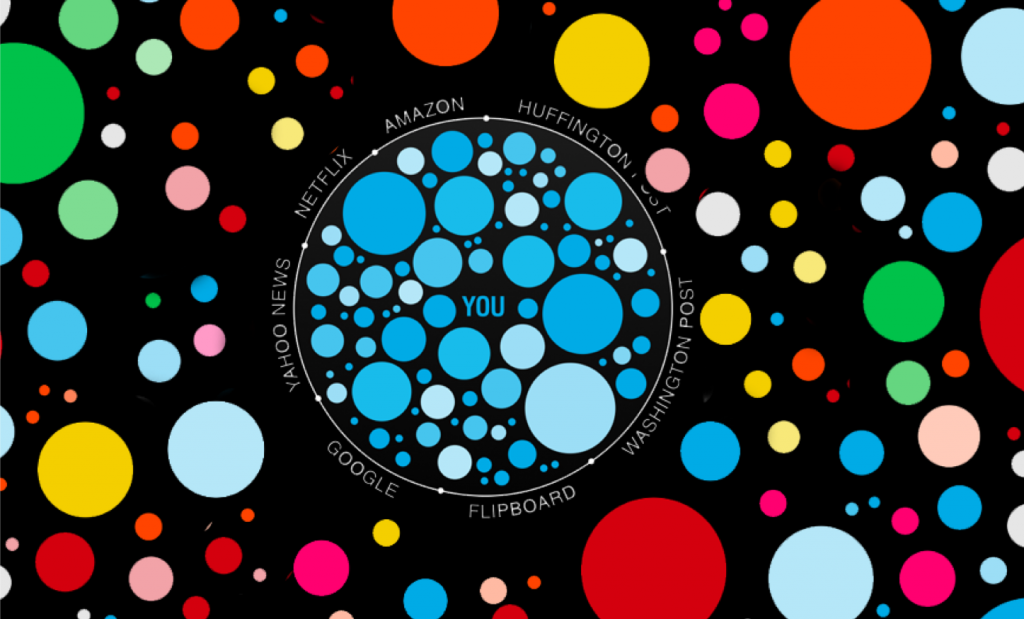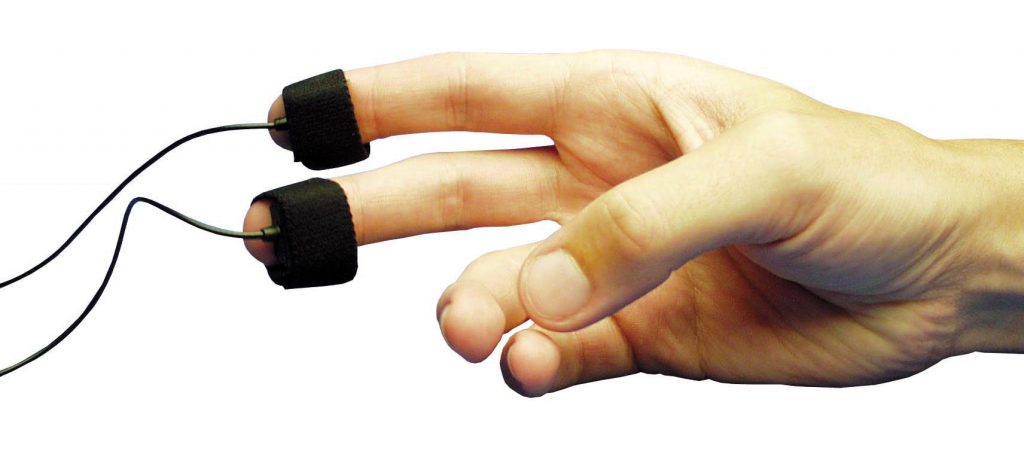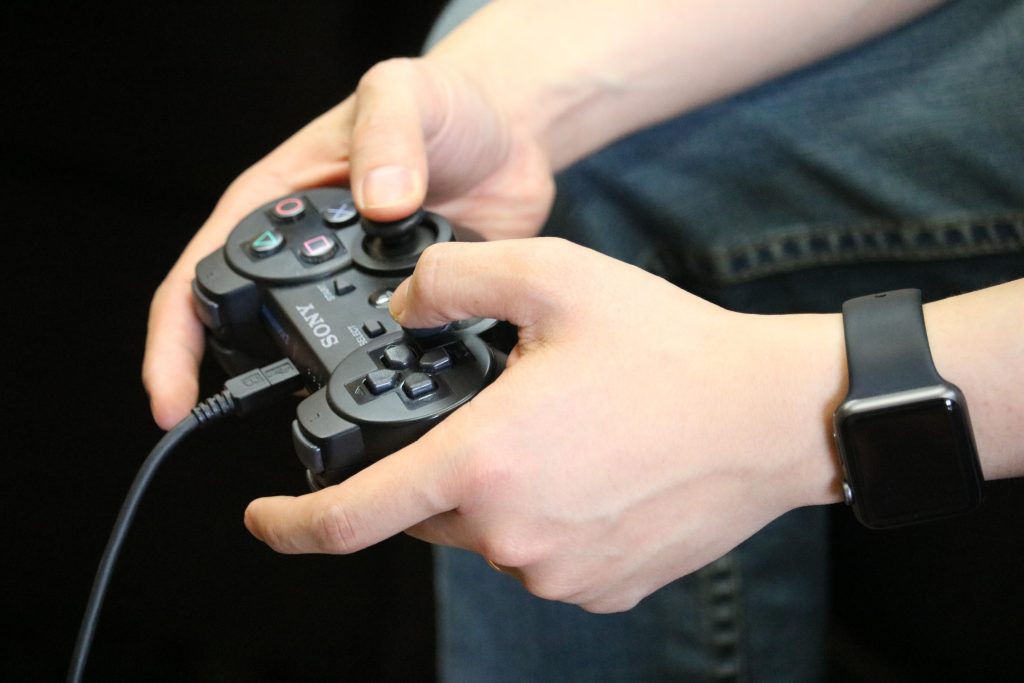MCRC Team Shares IJOC Call for Papers: “Presidential Debates Across the Americas”
International Journal of Communication: Special Issue Call for Papers: “Presidential Debates Across the Americas: Analyzing Candidate Performance in Hybrid Media Settings” Guest editors: Dhavan V. Shah, University of Wisconsin Madison Martin Echeverría, Autonomous University of …
MCRC Researchers Share Work on Simulating Opinion Dynamics with LLMs
MCRC researchers, Dhavan Shah and Sijia Yang, joined with colleagues in psychology and computer science to publish two proceedings on the use of Large Language Models (LLMs) to simulate opinion dynamics. This work will be …
SMAD Researcher Publish on Shifting Coverage of Sexual Violence Amid #MeToo
In their new article, “From Weinstein to Kavanaugh: Shifting Coverage of Sexual Violence and the #MeToo Movement Across U.S. News Media,” a team of researchers from Social Media and Democracy examined how news coverage and …
MCRC Research Team Awarded Research Forward Grant for Artificial Intelligence Terrarium
A team of researchers from the Mass Communication Research Center has been awarded the Research Forward grant to assist in the completion of an Artificial Intelligence (AI) Terrarium. The team consists of Jack M. McLeod …
Professor Dhavan Shah Awarded WARF Named Professorship
Dhavan Shah, Maier-Bascom Professor in the School of Journalism and Mass Communication has been named the Jack M. McLeod Professor of Communication Research through the Wisconsin Alumni Research Foundation (WARF) Named Professorship award. The WARF named professorship …
SMAD Team Finds Thematic, Event and Temporal Expression Polarization
The SMAD team studied patterns of polarized expression on social media and found that it could be categorized into three groups that not only explain existing concepts about polarization but speak to the deep partisan divide.
HITS Researchers Use Machine Learning to Explain Recovery Trajectories
HITS used supervised machine learning to understand how communication styles relate to writers’ substance use and well-being outcomes.
New CAMER article “Correction by distraction: how high-tempo music enhances medical experts’ debunking TikTok videos”
The CAMER team explored the effects of background music on improving the effectiveness of debunking TikTok videos produced by medical professionals.
New CAMER article “Designing and testing social media campaign messages to promote COVID-19 vaccine confidence among rural adults: A community-engaged approach featuring rural community leader and clinician testimonials”
The CAMER team explored the efficacy of a community-engaged approach to developing social media campaign messages in promoting COVID-19 vaccine uptake and pro-vaccine social diffusion among rural adults.
New CAMER article “Emotional Appeals and Norms: How Normative Perceptions Moderate the Persuasive Impacts of Discrete Emotional Appeals within Tobacco Pictorial Warnings in China”
The CAMER team examined how contextual pro-smoking norms might influence the persuasive impacts of discrete emotional appeals within pictorial warnings on tobaccos products, especially in China, where the overall smoking rate and social acceptance remain high.
New CAMER article “Hope over fear: The interplay between threat information and hope appeal corrections in debunking early COVID-19 misinformation Author links open overlay panel”
The CAMER team examined the emotional basis for misinformation susceptibility and how emotional appeals may help reduce COVID-19-related misperceptions.
New CAMER article “Applying the Hornik & Woolf Approach to Identify Messaging Themes and Improve COVID-19 Vaccine Confidence Among Federally Qualified Health Centers’ Workforce in Wisconsin”
The CAMER team examined COVID-19 vaccine hesitancies within Wisconsin’s Federally Qualified Health Centers and how different messaging themes may boost their vaccine confidence.
New CAMER article “Effects of Moral Frames Within Vaping Prevention Messages on Current smokers’ Support for Electronic Cigarette Regulations”
The CAMER team examined the effects of moral frames on current adult smokers’ support for vape-free policies and marketing restrictions.
New CAMER article “Yet Again Conversations Matter: The Importance of Interpersonal Discussions, Educational Campaigns, and Advertising on Cannabis-Related Risk Perceptions, Attitudes, and Intentions in At-Risk Young Adults”
The CAMER team evaluated the relationships between cannabis-related communication and outcomes of interest such as cannabis-related risk perceptions, attitudes, and behaviors among young adults.
New Publication on mHealth Support for People Living with HIV and SUDs
The Health Information Technology Studies group examined the use and utility of an mHealth app designed to support people living with HIV and SUD.
CHESS Team Publishes Results of Opioid Use mHealth RCT
The Health Information Technology Studies group tested the impact of combining addiction medications with smartphone intervention technology.
Center for Communication and Civic Renewal (CCCR) Launches Standalone Website
With the growth of the Center for Communication and Civic Renewal (CCCR) from working groups within the MCRC — specifically, Civic Culture and Contentious Politics and Consumer Culture and Civic Participation (CCCP) — into a free-standing …
New article “Patient-Provider Communication while Using a Clinical Decision Support Tool: Explaining Satisfaction with Shared Decision Making for Mammography Screening”
The Health Information Technology Studies group reveals the importance of patient-provider communication to predict decision-making satisfaction.
New article “Team Science Principles Enhance Cancer Care Delivery Quality Improvement: Interdisciplinary Implementation of Breast Cancer Screening Shared Decision Making”
The Health Information Technology Studies group aims to improve the effectiveness, patient-centeredness and efficiency of shared decision making for breast cancer screening.
New article from HITS “The Effects of Vaccine Efficacy Information on Vaccination Intentions through Perceived Response Efficacy and Hope”
The Health Information Technology Studies group explores the psychological factors involved in communicating vaccine efficacy.
New article “mHealth and Social Mediation: Mobile Support Among Stigmatized People Living with HIV and Substance Use Disorders”
The Health Information Technology Studies group examines the use of social mediation technology for people living with HIV and substance use disorders.
New article from CCCR “Red Media vs. Blue Media: Social Distancing and Partisan News Media Use During the COVID-19 Pandemic”
The Center for Communication and Civic Renewal explores the relationship between partisan media use and social distancing behavior related to COVID-19.
New article from SMAD “‘Think Global, Act Local’: How #MeToo Hybridized Across Borders and Platforms for Contextual Relevance”
The Social Media and Democracy group examines the #MeToo movement through a global lens and demonstrates how the movement differs across language groups and social media platforms.
New article “Building an ICCN Multimodal Classifier of Aggressive Political Debate Style: Towards a Computational Understanding of Candidate Performance Over Time”
The Social Media and Democracy Group addresses the challenge of micro-coding aggressive political debate styles by developing a multimodal classifier that incorporates video and audio features with speech coding of candidate debate performance.
New Wisconsin and National Surveys on Political News and Conversation Find Big Party Differences
A new UW-Madison report has found that 27% of Wisconsin Republicans and 14% of Wisconsin Democrats reside in partisan bubbles, where they do not regularly hear opposing perspectives in news or political conversations.
New Survey on Wisconsin’s Civic and Political Life Finds Deep Fractures, but also Common Ground for Civic Renewal
A new report from the Center for Communication and Civic Renewal found deep fractures in Wisconsin political life as well as political common ground and opportunities for civic renewal.
UW-Madison researchers to study effect of social media on adolescent health
The grant will allow researchers to explore the effects of technology and digital media on adolescent health and development, and develop intervention strategies based on findings. MADISON, Wis. – Researchers at the University of Wisconsin …
New grant for CAMER faculty lead Sijia Yang
New grant awarded by ICTR to CAMER faculty lead Sijia Yang and his team to help reduce vaccine hesitancy in rural communities in Wisconsin and beyond. Yang serves as co-investigator. Stakeholder and Patient Engaged Research …
New CCCR article “Ideology and COVID-19 Vaccination Intention: Perceptual Mediators and Communication Moderators”
New article “Ideology and COVID-19 Vaccination Intention: Perceptual Mediators and Communication Moderators” in the Journal of Health Communication from the Center for Communication and Civic Renewal. Abstract Widespread COVID-19 vaccination is critical to slow the spread of …
Team receives $5 million award to continue research on misinformation correction
The award will allow researchers to further develop Course Correct, a precision tool providing journalists with guidance against misinformation. MADISON, Wis. – A team of researchers that developed Course Correct, a tool to help journalists …
New book from CCCR “Battleground: Asymmetric communication ecologies and the erosion of civil society in Wisconsin”
New book “Battleground: Asymmetric communication ecologies and the erosion of civil society in Wisconsin” from authors in the Center for Communication and Civic Renewal, including Lew Friedland, Dhavan Shah, Mike Wagner, Kathy Cramer, Chris Wells …
New article from HITS “Coaching older adults discharged home from the emergency department: The role of competence and emotion”
New article “Coaching older adults discharged home from the emergency department: The role of competence and emotion in following up with outpatient clinicians” in Patient Educ Couns. from the Health Information Technology Studies group aiming to answer …
New article from SMAD “Vaccine discourse during the onset of the COVID-19 pandemic: Topical structure and source patterns”
In the new article “Vaccine discourse during the onset of the COVID-19 pandemic: Topical structure and source patterns informing efforts to combat vaccine hesitancy” in PLoS One, the Social Media and Democracy group extracted a …
CAMER publishes new article “How Climate Movement Actors and News Media Frame Climate Change and Strike”
In the new article “How Climate Movement Actors and News Media Frame Climate Change and Strike: Evidence from Analyzing Twitter and News Media Discourse from 2018 to 2021” in The International Journal of Press and …
New article from CAMER “Textual and pictorial enhancement of cannabis warning labels: An Online experiment among at-risk U.S. young adults”
In the new article “Textual and pictorial enhancement of cannabis warning labels: An Online experiment among at-risk U.S. young adults” in the journal Drug and Alcohol Dependence, the Computational Approaches and Message Effects Research group …
Professor Dhavan Shah Receives ICA B. Aubrey Fisher Mentorship Award
At their 72nd Annual Conference in Paris France, the International Communication Association (ICA) awarded its B. Aubrey Fisher Mentorship Award to SJMC Maier-Bascom Professor Dhavan Shah. Since 1988, the B. Aubrey Fisher Award has been …
New article from CCCR “Spatial Polarization, Partisan Climate, and Participatory Actions: Do Congenial Contexts Lead to Mobilization?”
New article “Spatial Polarization, Partisan Climate, and Participatory Actions: Do Congenial Contexts Lead to Mobilization, Resignation, Activation, or Complacency?” in Political Behavior from the Center for Communication and Civic Renewal. Abstract With increasing evidence on deepening …
CAMER Faculty Lead Sijia Yang Receives Exceptional Service Support Award
Sijia Yang, Assistant Professor in the School of Journalism and Mass Communication, has received an Exceptional Service Support award from the Office of the Provost.
New publication “Algorithmic Agents in the Hybrid Media System: Social Bots, Selective Amplification, and Partisan News about COVID-19” from CAMER
In the new article “Algorithmic Agents in the Hybrid Media System: Social Bots, Selective Amplification, and Partisan News about COVID-19” in the journal Human Communication Research, the Computational Approaches and Message Effects Research group employed …
New article from CCCR “Political Events in a Partisan Media Ecology: Asymmetric Influence on Candidate Appraisals”
New article “Political Events in a Partisan Media Ecology: Asymmetric Influence on Candidate Appraisals” in Mass Communication and Society from the Center for Communication and Civic Renewal. Abstract Political campaigns often feature jarring revelations against candidates. …
New CCCR publication “Breaking the “Virtuous Circle”: How Partisan Communication Flows Can Erode Social Trust but Drive Participation”
New article “Breaking the “Virtuous Circle”: How Partisan Communication Flows Can Erode Social Trust but Drive Participation” in Human Communication Research from the Center for Communication and Civic Renewal. Abstract We examine how individuals’ interactions with …
New article from SMAD “Covering# MeToo across the News Spectrum: Political Accusation and Public Events as Drivers of Press Attention”
In the new article “Covering# MeToo across the News Spectrum: Political Accusation and Public Events as Drivers of Press Attention” in the International Journal of Press/Politics, the Social Media and Democracy Group examines how news …
New SMAD publication “Reactive and Asymmetric Communication Flows: Social Media Discourse and Partisan News Framing in the Wake of Mass Shootings”
New article “Reactive and Asymmetric Communication Flows: Social Media Discourse and Partisan News Framing in the Wake of Mass Shootings” in The International Journal of Press/Politics from the Center for Communication and Civic Renewal. Abstract Marked …
New CBB article “Parental education is associated with differential engagement of neural pathways during inhibitory control”
New article “Parental education is associated with differential engagement of neural pathways during inhibitory control” in Nature.com’s Scientific Reports led by Communication, Brain and Behavior (CBB) Lab faculty leader Chris Cascio.
New HITS article “The Relationship among COVID-19 Information Seeking, News Media Use, and Emotional Distress at the Onset of the Pandemic”
New article “The Relationship among COVID-19 Information Seeking, News Media Use, and Emotional Distress at the Onset of the Pandemic” in the International Journal of Environmental Research and Public Health from the Health Information Technology …
New Book Chapter from SMAD “Counter a reactive media system” in “Fixing American Politics”
New chapter “Counter a reactive media system” in the book Fixing American Politics from the Social Media and Democracy Group. Full Citation: Counter a reactive media system D Shah, Y Zhang, J Pevehouse, S Valenzuela Fixing American Politics, …
CBB researchers give a talk to Ford’s Global Communications Team
Communication, Brain and Behavior (CBB) lab faculty leader Chris Cascio and Matt Minich gave a talk to Ford’s Global Communications Team about the neuroscience behind persuasion and influence. The talk was an opportunity for researchers …
CBB faculty leader Chris Cascio elected vice chair of ICA Communication Science & Biology group
Communication, Brain and Behavior (CBB) lab faculty leader assistant professor Chris Cascio has been elected as vice chair of the International Communication Association’s Communication Science & Biology interest group. The election saw 26% voter turnout. …
News article featuring CBB researchers in Bloomberg Businessweek
A new article in Bloomberg Businessweek by Sarah McBride “What My Brain Scan Revealed About the Science of Persuasion” features Communication, Brain and Behavior (CBB) Lab leader Chris Cascio and PhD student Matt Minich. In …
Alum Yini Zhang (PhD’20) wins Thomas E. Patterson Best Dissertation Award
At the American Political Science Association’s 2021 Annual Meeting, alum Yini Zhang (PhD’20) received the Thomas E. Patterson Best Dissertation Award from the Political Communication section for her dissertation “A Network Approach to Understanding Public …
Researchers Win Grant to Combat Misinformation About COVID and Elections
A team of researchers has received a $750,000 grant from the NSF’s Convergence Accelerator to study methods of combating misinformation online.
UW Team Publishes “Polarization Over Vaccination: Ideological Differences in Twitter Expression About COVID-19”
New article “Polarization Over Vaccination: Ideological Differences in Twitter Expression About COVID-19 Vaccine Favorability and Specific Hesitancy Concerns” in the journal Social Media + Society from the Center for Communication and Civic Renewal.
New HITS publication “Prospective Prediction of Lapses in Opioid Use Disorder: Protocol for a Personal Sensing Study”
New article “Prospective Prediction of Lapses in Opioid Use Disorder: Protocol for a Personal Sensing Study” in JMIR Research Protocols from the Health Information Technology Studies (HITS) group.
Campus Group Receives Grants to Expand Elder Tree Platform to Smart Speakers and Smart Displays
According to projections from the Wisconsin Department of Health Services, the population in Wisconsin ages 65 and older is expected to increase by 72% between 2015 and 2040. The population is aging rapidly in rural …
New CCCR publication “Free and Fair? The Differential Experiences of Voting Barriers and Voting Policies in American Midterm Elections”
New article “Free and Fair? The Differential Experiences of Voting Barriers and Voting Policies in American Midterm Elections” in the International Journal of Public Opinion Research from the Center for Communication and Civic Renewal (CCCR). Abstract: …
KEG publishes “Navigating a Diverse Paradigm: A Conceptual Framework for Experimental Framing Effects Research”
New article “Navigating a Diverse Paradigm: A Conceptual Framework for Experimental Framing Effects Research” in the journal Review of Communication Research from the Cognitive Effects Research Group (KEG). Abstract: This review introduces a conceptual framework with …
ICRG publishes “Perceiving Immigrants as a Threat: A Motivational Approach to False Consensus”
In the new article “Perceiving Immigrants as a Threat: A Motivational Approach to False Consensus” in the journal Communication Research, the International Communication Research Group explores perceived threat of immigration as a motivational factor that …
CAMER publishes “Twitter as research data: Tools, costs, skill sets, and lessons learned”
In the new article “Twitter as research data: Tools, costs, skill sets, and lessons learned” in the journal Politics and the Life Sciences, the Computational Approaches and Message Effects Research (CAMER) group evaluates Twitter data …
New publication “Social Media, Messaging Apps, and Affective Polarization in the United States and Japan” from ICRG
In the new article “The Contexts of Political Participation: The Communication Mediation Model Under Varying Structural Conditions of the Public Sphere” in the International Journal of Press/Politics, the International Communication Research Group examines the communication …
New from ICRG “The Contexts of Political Participation: The Communication Mediation Model Under Varying Structural Conditions of the Public Sphere”
In the new article “The Contexts of Political Participation: The Communication Mediation Model Under Varying Structural Conditions of the Public Sphere” in the International Journal of Press/Politics, the International Communication Research Group examines the communication …
SMAD group publishes “Resonant Moments in Media Events: Discursive Shifts, Agenda Control, and Twitter Dynamics”
In the new article “Resonant Moments in Media Events: Discursive Shifts, Agenda Control, and Twitter Dynamics in the First Clinton-Trump Debate” in the Journal of Quantitative Description: Digital Media, the Social Media and Democracy (SMAD) group found key differences in social media discourse about the two candidates during the first 2016 U.S. presidential debate.
HITS publishes “Effect of an eHealth Intervention on Older Adults’ Quality of Life, Independence, and Health-Related Outcomes”
In the new article “Effect of an eHealth Intervention on Older Adults’ Quality of Life, Independence, and Health-Related Outcomes: A Randomized Clinical Trial” in the Journal of General Internal Medicine, the Health Information Technology Studies (HITS) group studied the effectiveness of an eHealth intervention designed to improve quality of life for older adults.
Yang Co-Investigator on Two New Grants to Study Vaccine Hesitancy
Computational Approaches and Message Effects Research (CAMER) group faculty leader Sijia Yang is a co-investigator on two new grants. The grants will fund projects researching vaccine hesitancy The first grant is funded by the UW …
SMAD group publishes “Death Across the News Spectrum: A Time Series Analysis of Partisan Coverage Following Mass Shootings in the U.S.”
In the new article “Death Across the News Spectrum: A Time Series Analysis of Partisan Coverage Following Mass Shootings in the U.S.” in the International Journal of Communication, the Social Media and Democracy (SMAD) group analyzed news coverage following mass shooting events.
New from ICRG “What Motivates People to Correct Misinformation? Examining the Effects of Third-person Perceptions”
In the new article “What Motivates People to Correct Misinformation? Examining the Effects of Third-person Perceptions and Perceived Norms” in the Journal of Broadcasting & Electronic Media, the International Communication Research Group relates the third-person …
CBB Article One of the Most Downloaded of 2020
An article co-authored by Communication, Brain and Behavior (CBB) Lab faculty leader Chris Cascio in Social Cognitive and Affective Neuroscience was one of the journal’s most downloaded of 2020.
New HITS publication “Effect of a Mobile-Health Intervention (A-CHESS) on Hepatitis C Testing Uptake Among People with Opioid Use Disorder”
In the new article “Effect of a Mobile-Health Intervention (A-CHESS) on Hepatitis C Testing Uptake Among People with Opioid Use Disorder: A Randomized Controlled Trial” in the journal JMIR mHealth and uHealth, the Health Information …
New HITS article “A Web-based eHealth Intervention to Improve Quality of Life for Older Adults with Multiple Chronic Conditions”
In the new article “A Web-based eHealth Intervention to Improve Quality of Life for Older Adults with Multiple Chronic Conditions: Study Protocol for a Randomized Controlled Trial” in the journal JMIR Research Protocols, the Health Information Technology Studies (HITS) group studied the effectiveness of an eHealth intervention designed to improve quality of life for older adults with multiple chronic conditions.
New article from CCCR “Understanding Trump Supporters’ News Use: Beyond the Fox News Bubble”
In the new article “Understanding Trump Supporters’ News Use: Beyond the Fox News Bubble” in the journal The Forum, the Center for Communication and Civic Renewal (CCCR) group finds that many Trump supporters’ media consumption tends to be more omnivorous than solely Fox News.
CCCR publishes “News Media Use, Talk Networks and Anti-Elitism Across Geographic Location: Evidence from Wisconsin”
In the new article “News Media Use, Talk Networks and Anti-Elitism Across Geographic Location: Evidence from Wisconsin” in the journal International Journal of Press/Politics, the Center for Communication and Civic Renewal (CCCR) group explores media consumption behaviors based on an individual’s geographic place.
HITS publishes “The Effects of Online Social Connectedness on Older Adults’ Depressive Symptoms”
In the new article “The Effects of Online Social Connectedness on Older Adults’ Depressive Symptoms: Evidence from a Two-Wave Cross-lagged Panel Study” in the Journal of Medical Internet Research, the Health Information Technology Studies (HITS) group studied the effectiveness of a support website for enhancing social connectedness on improving depressive symptoms in older adults.
CCCR and HITS publish “News Attention and Social Distancing Behavior Amid COVID-19”
In the new article “News Attention and Social Distancing Behavior Amid COVID-19: How Media Trust and Social Norms Moderate a Mediated Relationship” in the journal Health Communication, the Center for Communication and Civic Renewal (CCCR) …
MCRC Faculty Leaders Win 2020 Fall Research Competition Grant
MCRC Faculty Leaders Chris Cascio, Communication, Brain and Behavior (CBB) Lab Faculty Leader, and Sijia Yang, Computational Approaches and Message Effects Research (CAMER) Group Faculty Leader, are co-PIs on a new project, “Developing and Testing …
HITS publishes “Online health information seeking, medical care beliefs and timeliness of medical check-ups among African Americans”
In the new article “Online health information seeking, medical care beliefs and timeliness of medical check-ups among African Americans” in the journal Patient Education and Counseling, the Health Information and Technology Studies (HITS) group found links between technology use and positive health behaviors among African Americans.
New publication advances research framework for digital health intervention
A new journal article from the Health Information Technology Studies (HITS) team, led by “Estelle” Ranran Mi, was published in Health Communication. The paper, “Intraindividual, Dyadic, and Network Communication in a Digital Health Intervention: Distinguishing Message Exposure from Message Production,” revealed nuanced intervention effects of a smartphone-based application for addiction recovery by examining message exposure and production at different levels of communication.
SMAD team publishes “Covering #MeToo across the News Spectrum: Political Accusation and Public Events as Drivers of Press Attention”
Furthering their research on the #MeToo movement, the Social Media and Democracy (SMAD) team has published “Covering #MeToo across the News Spectrum: Political Accusation and Public Events as Drivers of Press Attention” in The International Journal of Press/Politics.
New article from HITS group “Framing the Clinical Encounter: Shared Decision-Making, Mammography Screening, and Decision Satisfaction”
The Health Information Technology Studies (HITS) group has a new article out in the Journal of Health Communication. The article, “Framing the Clinical Encounter: Shared Decision-Making, Mammography Screening, and Decision Satisfaction” was published in October 2020.
New ICRG article “Chatting in a mobile chamber: effects of instant messenger use on tolerance toward political misinformation among South Koreans”
In the new article “Chatting in a mobile chamber: effects of instant messenger use on tolerance toward political misinformation among South Koreans” in the Asian Journal of Communication, the International Communication Research Group explores the …
New HITS article “Understanding How e-Health Intervention Meets Psychosocial Needs of Breast Cancer Patients”
In the new article “Understanding How e-Health Intervention Meets Psychosocial Needs of Breast Cancer Patients: The Pathways of Influence on Quality of Life and Cancer Concerns” in the journal Psycho-Oncology, the Health Information Technology Studies (HITS) group found that using e-health interventions can help patients improve cancer information management skills and emotional functioning, contributing to better short-term health outcomes.
New Fact-Checking Projects Focus on Combating COVID-19 Misinformation
With information about COVID-19 rapidly circulating online, it can be difficult to determine what’s true and what’s not. Social media has made it even easier for misinformation and disinformation to spread unchecked. Knowing whether a …
New HITS publication “Potential Influences of the COVID-19 Pandemic on Drug Use and HIV Care”
In the new article “Potential Influences of the COVID-19 Pandemic on Drug Use and HIV Care Among People Living with HIV and Substance Use Disorders: Experience from a Pilot mHealth Intervention” in the journal AIDS and Behavior, the Health Information Technology Studies (HITS) group examined the health and social consequences of the pandemic on people with HIV and substance use disorder.
New article from KEG “Exploring Numerical Framing Effects: The Interaction Effects of Gain/Loss Frames and Numerical Presentation Formats on Message Comprehension, Emotion, and Perceived Issue Seriousness”
New article “Exploring Numerical Framing Effects: The Interaction Effects of Gain/Loss Frames and Numerical Presentation Formats on Message Comprehension, Emotion, and Perceived Issue Seriousness” in the journal Journalism and Mass Communication Quarterly from the Cognitive Effects …
ICRG publishes “‘Fake News Is Anything They Say!’ — Conceptualization and Weaponization of Fake News among the American Public”
In the new article ““Fake News Is Anything They Say!” — Conceptualization and Weaponization of Fake News among the American Public” in the journal Mass Communication and Society, the International Communication Research Group examines the …
The Wisconsin Idea in Action: MCRC Group Collaborates on COVID-19 Wisconsin Connect App
The University of Wisconsin has a long tradition of quality education, strong community and dedicated service. These principles are all key to the Wisconsin Idea: that education should influence people’s lives beyond the boundaries of …
HITS publishes “Exploring the Role of Social Support in Promoting Patient Participation in Health Care Among Women with Breast Cancer”
In the new article “Exploring the Role of Social Support in Promoting Patient Participation in Health Care Among Women with Breast Cancer” in the journal Health Communication, the Health Information Technology Studies (HITS) group studied …
SMAD publishes “Performing populism: Trump’s transgressive debate style and the dynamics of Twitter response” in New Media & Society
The Social Media and Democracy (SMAD) group has a new article published in New Media & Society. The article, “Performing populism: Trump’s transgressive debate style and the dynamics of Twitter response” was published in April 2020.
SMAD group publishes “Trump, Twitter, and news media responsiveness: A media systems approach”
The Social Media and Democracy (SMAD) group has published a new article in the journal New Media and Society, titled “Trump, Twitter, and news media responsiveness: A media systems approach”.
New article from KEG “The Effects of Framing and Advocacy Expectancy on Belief Importance and Issue Attitude”
New article “The Effects of Framing and Advocacy Expectancy on Belief Importance and Issue Attitude” in the journal Mass Communication and Society from the Cognitive Effects Research Group (KEG). Abstract: Message frames have been found to …
KEG publishes new article “Reconceptualizing cognitive media effects theory and research under the judged usability model”
New article “Reconceptualizing cognitive media effects theory and research under the judged usability model” in the journal Review of Communication Research from the Cognitive Effects Research Group (KEG). Abstract: This review synthesizes the existing literature on …
CCCR publishes new article, “Do Improving Conditions Harden Partisan Preferences? Lived Experiences, Imagined Communities, and Polarized Evaluations”
The Center for Communication and Civic Renewal (CCCR) has a new article published in the International Journal of Public Opinion Research titled “Do Improving Conditions Harden Partisan Preferences? Lived Experiences, Imagined Communities, and Polarized Evaluations”. The article was published in January 2020.
New publication “Beyond the Notion of Accessibility Bias: Message Content as the Common Source of Agenda-Setting and Priming Effects” from KEG
New article “Beyond the Notion of Accessibility Bias: Message Content as the Common Source of Agenda-Setting and Priming Effects” in the journal Mass Communication and Society from the Cognitive Effects Research Group (KEG). Abstract: This study …
New publication: Giving and receiving social support in online substance use disorder forums: How self-efficacy moderates effects on relapse
The Health Information Technology Studies (HITS) group has published the article “Giving and receiving social support in online substance use disorder forums: How self-efficacy moderates effects on relapse” in the journal Patient Education and Counseling.
Room 5013 Vilas Hall rededicated as Jack McLeod Seminar Room
Jack McLeod, Maier-Bascom Professor Emeritus and longtime director of the Mass Communication Research Center, was honored with the rededication of Room 5013 of Vilas Hall as the Jack M. McLeod Roundtable Seminar Room. Professor McLeod …
Rojas Publishes in Nature Human Behaviour on “Taming the Digital Information Tide”
Sebastián Valenzuela, Associate Professor in the School of Communications, Pontificia Universidad Católica de Chile, and Hernando Rojas, Helen Firstbrook Franklin Professor in the School of Journalism and Mass Communication at the University of Wisconsin-Madison published …
SMAD Team Published on #MeToo Movement in Social Science Computer Review
Researchers in the Social Media and Democracy (SMAD) group published their paper, “#MeToo, Networked Acknowledgment, and Connective Action: How Empowerment Through Empathy Launched a Social Movement,” in Social Science Computer Review. The study, led by …
Knight Gives $1.0 Million for Center for Communication and Civic Renewal
Researchers in the School of Journalism and Mass Communication at the University of Wisconsin-Madison have been awarded a $1 million grant from the John S. and James L. Knight Foundation to establish the Center for …
Shah and Curtin Win $3.4 Million NIH Grant to Support Opioid Recovery
Researchers at the University of Wisconsin—Madison have received a $3.42 million grant from the National Institutes of Health to develop a mobile phone-based app to prevent opioid relapse among those trying to recover. The project …
Rojas publishes “A Call to Contextualize Public Opinion-Based Research in Political Communication”
Faculty Leader of the International Communication Research Group (ICRG) Hernando Rojas is the co-author on a new article, “A Call to Contextualize Public Opinion-Based Research in Political Communication” in the journal Poltical Communication, published in October 2019.
KEG publishes “Counter-Framing Effects of User Comments”
New article “Counter-Framing Effects of User Comments” in the International Journal of Communication from the Cognitive Effects Research Group (KEG). Abstract: Past research shows that news frames shape audience reactions to news messages. As individuals receive …
New Publication: “Political tolerance of demobilizing armed actors: The case of FARC in Colombia”
Co-authored by International Communication Research Group (ICRG) Faculty Leader Hernando Rojas, the article “Political tolerance of demobilizing armed actors: The case of FARC in Colombia” was published in the journal Online First in September 2019.
Populism Conference Website Launched with Presentation Videos
The website featuring the collection of presentations and reflections on communication and populism from our “Communication, Populism, and the Crisis of Democracy” conference is now available (link to website). In Spring 2018, the Civic Culture and …
SMAD Team Publishes “Whose Lives Matter?” in Journal of Computer-Mediated Communication
Researchers in the Social Media and Democracy (SMAD) group had their paper, “Whose Lives Matter? Mass Shootings and Social Media Discourses of Sympathy and Policy, 2012-2014,” published in the Journal of Computer-Mediated Communication, the highest …
New article from KEG “Pathways to news commenting and the removal of the comment system on news websites”
New article “Pathways to news commenting and the removal of the comment system on news websites” in the journal Journalism from the Cognitive Effects Research Group (KEG). Abstract: Many major news websites have recently opted …
CCCP Answers “What Makes Wisconsin Swing?”
What makes Wisconsin a Swing State, and what causes it to swing to the right or the left? Mike Wagner, Jiyoun Suk, and others working as part of the Civic Culture and Contentious Politics (CCCP) …
CCCP Publishes Op-Ed on Public Support for Nonpartisan Redistricting
Members of the Civic Culture and Contentious Politics research team published an op-ed about how Wisconsinites of both parties want nonpartisan redistricting. As the piece notes, “Legislative redistricting is one of the most important — and …
Computational Methods Group Meetings, Spring 2019
Computational Methods will meet every week at 3:30 PM in Grainger Hall for its Spring 2019 courses (listed below). Date Topic Tools Teacher 1-Feb Text Analysis II – quanteda quanteda (R) Josephine 8-Feb CANCELLED (Flooding) 15-Feb …
SMAD Studies Trump’s Populist Debate Style and How it Shaped Twitter Response
A new study by Social Media and Democracy group researchers (link to submission) examines how Trump’s populist communication style, as manifest in his rhetorical and non-verbal approach to Presidential debates, drove reactions on social media. …
CCCP Wins Additional $272K in Grants from Hewlett, Thompson, and Journal
The Civic Culture and Contentious Politics (CCCP) was awarded a total of $272,000 in additional grants for their research on “Communication Ecologies, Political Contention, and the Crisis of Democracy” from the Hewlett Foundation, Journal Foundation, …
HITS Team Publishes on Health Disparities
Two journal articles from the HITS (Health Information Technology Studies) team, one published in Health Communication and the other in Health Education Research, tackle the role of information technologies in health disparities. The Health Communication paper …
KEG publishes “Effects of Frame Repetition Through Cues in the Online Environment”
Photo by Brad Javernick of Home Oomph New article “Effects of Frame Repetition Through Cues in the Online Environment” in the journal Mass Communication and Society from the Cognitive Effects Research Group (KEG). Abstract: Research …
Cramer and Toff Win Major Awards
Katherine Cramer, MCRC Senior Fellow, and Benjamin Toff, former SMAD member, received the Heinz Eulau Award for the best article published in Perspectives on Politics in 2017 for “The Fact of Experience: Rethinking Political Knowledge and Civic Competence” (Perspectives …
HITS Team Publishes Computational Solutions to Addiction Crisis
Two new studies published by HITS (Health Information Technologies Studies) researchers, both led by Rachel Kornfield, offer computational health communication solutions to substance abuse. The most recent study (available through Journal of Medical Internet Research) was based …
KEG publishes “Framing Risk with Numbers: The Framing Effects of Risk Assertions and Number Formats on Emotions and Risk Perceptions”
New article “Framing Risk with Numbers: The Framing Effects of Risk Assertions and Number Formats on Emotions and Risk Perceptions” in the journal Mass Communication and Society from the Cognitive Effects Research Group (KEG). Abstract: …
New KEG publication “Pathways to News Sharing: Issue Frame Perceptions and the Likelihood of Sharing”
New article “Pathways to News Sharing: Issue Frame Perceptions and the Likelihood of Sharing” in the journal Computers in Human Behavior from the Cognitive Effects Research Group (KEG). Abstract: Online news sharing has become an …
SMAD Russian Propaganda Research Wins Awards
The manuscript, “Zero Day Twitter: How Russians Propaganda Infiltrated the U.S. Hybrid Media System” received two awards at the 2018 Association in Education and Journalism and Mass Communication (AEJMC) conference this August. The paper won …
New article from KEG “Framing Obesity: Effects of Obesity Labeling and Prevalence Statistics on Public Perceptions”
New article “Framing Obesity: Effects of Obesity Labeling and Prevalence Statistics on Public Perceptions” in the journal Health Education and Behavior from the Cognitive Effects Research Group (KEG). Abstract: The rising prevalence rate of obesity …
UW “Contentious Politics” Group Lands $411K Grant to Study Communication and Democratic Crises in Wisconsin
University of Wisconsin-Madison School of Journalism and Mass Communication scholars were rewarded in April for their cutting-edge research examining how the growing polarization and fragmentation in the Wisconsin media ecology, as reflected in talk radio, …
The Twitter Exploit: How Russian Propaganda Infiltrated U.S. News
Click here to download the publication from the Computational Methods Group “The Twitter Exploit: How Russian Propaganda Infiltrated U.S. News”
SPEC/CIRCLE Research on Echo Chambers Presented at ICA
SPEC members Dhavan Shah, Jiyoun Suk, and Doug McLeod presented their work on how echo chambers on both the right and the left erode civic bonds at the 2018 International Communication Association meeting in Prague, …
New Research on News Exposure, Second Screening from ICRG
On perception of income inequality, shows a negative relationship with news exposure in Colombia, but also a positive link between entertainment content and citizens’ understanding of income gaps. Moreover, findings suggest that more realistic perceptions …
PACE Lab uncovers roots of hostile media perception
The Physiology and Communication Effects (PACE) Lab’s 2017 data collection examining the psychophysiological roots of thehostile media perception will be presented at the International Communication Association conference in Prague in May, 2018. “The Affective and Physiological …
VGRG Publishes in Entertainment Computing
Karyn Riddle, Zhen Di, Sunghak Kim, Eunyoung Myung, Swee Kiat Tay, and Fangxin Xu published their study, “The unexpected comfort of wearing headphones: Emotional and cognitive effects of headphone use when playing a bloody video game,” …
MCRC Team Conducts Online Experiments About Message Accuracy
The MCRC 2017-2018 research team has developed two parallel online experiments examining citizen information processing and judgments about message accuracy. Project 1 compares the priming effects of different ways of presenting fact-checking articles. It examines …
HITS Researchers Involved in New $4.2 Million NIH Grant
The two-thirds of Medicare patients being treated for at least three chronic health problems account for a stunning 90 percent of Medicare spending. UW-Madison researchers received a $4.2 million National Institutes of Health (NIH) grant …
SMAD Research Featured in Washington Post
The Social Media and Democracy group’s research on social media discourse after mass shootings was featured in the Washington Post! The report summarizes the results of the analysis of 1.3 million tweets and 700 related …
CCCP Hosts Communication and Populism Symposium
The Civic Culture and Contention Politics Group, with support from the UW’s Center for European Studies, hosted an international symposium and workshop entitled “Communication, Populism, and the Crisis of Democracy.” The symposium explored how democracies …
MCRC Research 2016-2017
MCRC’s 2016-2017 project conducted a national survey of American citizens on the eve of 2016 presidential election. Data were collected on citizens’ political ideology, values, and worldviews, issue positions, and voting behaviors. A series of …
Computational Methods Group Meetings, Spring 2018
Computational Methods will meet every other week at 3:30 PM in the MCRC lab this semester (Spring 2018). This semester, we will be focusing on natural language processing and machine learning strategies and will have …
